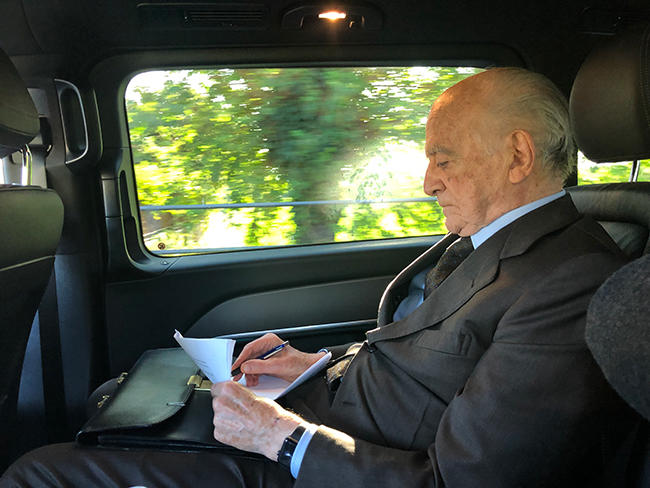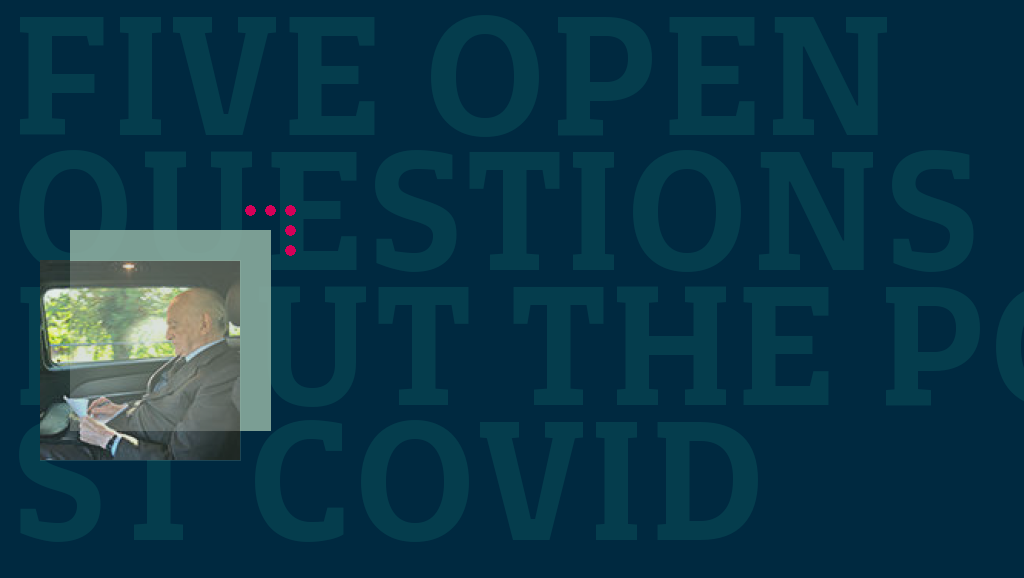For the first time, humanity in its entirety is having to face glocal problems: a pandemic virus, the ecological survival of the planet, life with artificial intelligence, how to deal with the infinite space of the big bang. The historical role of those who inhabit our Earth is changing, as she no longer unconditionally agrees to look after us: she presents us with her own way of making history and threatens to throw us out of it. Never has this reality been so stark as in the face of Covid-19. A year ago, Ilaria Capua wrote ‘I believe that this brings the real theme that we have to confront into play: responsible innovation in relation to health‘ (Salute circolare. Una rivoluzione necessaria, Egea 2019).
We live in an era of discontinuity – an eolian leap – though which history is no longer guided by innovation and technology. It is tied to the power of the Beyond. Innovation is like Alice’s mirror in the instant that she passes through it.
An elusive situation for historians, driving the temptation to look for help from an ineffable poet and prophet led political policy, one used to describing power over others, but that today should be about ourselves and the Beyond for each of us. Political questions about the governance of innovation cannot hide from this challenge.
We part from a dramatic declaration of impotence. We search for new global purposes for human action, cooperation in order to survive a global challenge; we wish to steer the potential of knowledge towards the governance of the improbable, united by unprecedented solidarity. The Giannino Bassetti Foundation therefore proposes five open questions to all those who intend to accept this challenge:
I.
The debate around technoscientific innovation has always found its place (as it does today) within the tensions between the field of public discourse (doxa, or opinion) and the field of knowledge incarnated through practice. In the first case, opinions and interests confront each other, information circulates through the media, political questions are formed. In the second, research advances are attested, innovations are patented, the reality within which we are constrained to live is produced. The instruments of science (starting with the ‘molecular view’ described by Helga Nowotny and Giuseppe Testa in Naked Genes: Reinventing the Human in the Molecular Age) manipulate life at its most profound levels, throwing the doors open to enormous possibilities (Yuval Noah Harari’s hypothesis, a man who from Sapiens aims to become Deus) while conferring equally enormous responsibilities. Which forms of decision-making can resolve the conflict between the needs of democracy, fed by doxa, and the needs of practice, fed by competence and all that is knowledge?
II.
As in all modern revolutions, today, dictated by technoscience, the person changes together with their system of relations. What could demonstrate this more than the pandemic? The virus is an accelerator which pushes us into understanding the dramatic challenges of having to live within a different reality. Beyond health and survival (will our health systems be able to cope? Will individualist or communitarian approaches prove more effective?) will we be able to continue to refer to the same models of organization regarding work and production (more or less forced into smartness)? Once functions have been modified (the explosion of networking demand and differences between those who have digital infrastructure and those who do not), we have to readdress our relationship to learning and training (we need doctors, but also the know-how to share global data in what is in reality a smaller world)? Will an online degree suffice?
III.
Innovation is immersed in potential, but orphaned from power; therefore, it is structured, legitimated potential. Potential without power has no self-awareness, and is therefore irresponsible. We meet power, it is the way in which humankind expands. But today humans are not dedicated to fighting against the power of other humans. In truth this is the first time that in the face of the enemy- in this case the virus, the extinction of the species through climate change, the infinitely small and infinitely large – humanity takes a consolidated position. How can we escape the frustration of impotence?
IV.
Through innovation, the bottom-up and the Internet destroy the certainties of hierarchy, representative democracy, democratic centralism and market absolutism. Without doubt, populism gains, but underneath all of this we see signs of a renewed demand for cooperative spirit, synchronized to opportunities for the type of innovation that the situation requires: sharing as a different form of use of goods (starting with intensive care beds), new digital platforms as tools for collective decision-making, connections that allow more power to those who are – also geographically – at the periphery. How can we govern in an era of networked connections?
V.
If the virus pandemic accelerates the twilight of the nation state, which communitarian identity, which polis will take them over? Will the great civilizations of immanentism or transcendence write the future?

—————
















